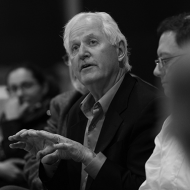About
Bryan Kolb is a neuroscientist who looks at how neurons in the cerebral cortex change in response to experiences, drugs, hormones, stress, and injury, and how these changes influence behaviour.
Over the past 45 years he has identified ‘rules’ that govern the effects of cerebral injury at different developmental ages with a goal of developing treatments to remediate neurodevelopmental disorders in children. Kolb has demonstrated a variety of mechanisms that underlie improvement from adverse perinatal experiences including neurogenesis and synaptogenesis. In addition, he was the first to show (with Terry Robinson) that psychoactive drugs produce permanent changes in neuronal structure in cerebral structures and that these changes influence later brain plasticity. Current work is looking at the role of traffic noise stress in brain and behavioural development and later brain plasticity.
Awards
- Officer of the Order of Canada, 2016
- Queen’s Diamond Jubilee Medal, the Royal Society of Canada, 2013
- Centennial Medal, Province of Alberta, 2005
- Fellow, Royal Society of Canada, 2000
- Honorary Doctorates: Thompson Rivers University, UBC Okanagan, Concordia University, University of Lethbridge
Relevant Publications
Kolb, B., and I.Q. Whishaw. An Introduction to Brain and Behavior. 5th ed. New York: Worth Publishers, 2016.
Harker, A. et al. “Preconception paternal stress in rats alters dendritic morphology and connectivity in the brain of developing male and female offspring.” Neuroscience 303 (2015): 200–10.
Kolb, B., and R. Gibb. “Childhood poverty and brain development.” Human Development 58 (2015): 215–17.
Kolb, B., and I.Q. Whishaw. Fundamentals of Human Neuropsychology. 7th ed. New York: Worth Publishers, 2015.
Kolb, B., and R. Gibb. “Searching for principles of brain plasticity and behavior.” Cortex 58C (2014): 251–60.
